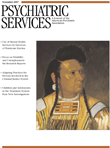Psychiatrists and Religious Belief: Reply
In Reply: Dr. Pies' effort to distinguish pathological religiosity from the religious impulse reveals a tendency to evaluate "maturity" of faith commitments that may be most appropriately left to clergy and religious scholars rather than to therapists. As an example of pathological religiosity, Dr. Pies describes someone who believes that his religion is the only true faith. As an example of "mature" religious impulse, he describes someone who is not religiously observant and looks to psychotherapy to find answers to her existential questions.
This dichotomizing of pathological and mature religiosity is inherently problematic, particularly when characterized in this fashion. For many, being religious means observing the teachings and traditions of a particular religion precisely because one believes that religion most adequately answers the sorts of questions that Dr. Pies' "seeker" asks. In Freud's terms, such religious persons believe in an illusion, but they are hardly mentally ill otherwise, and the knowledge that other people disagree with their convictions leads few to "fits of rage" and fantasies about revenge.
Tensions between psychiatry and religion likely emerge when one of the two tries to explain and treat a human experience that the other believes it alone has proper authority and resources to address. For example, religious traditions might encourage the "seeker" in Dr. Pies' example to turn to her particular religion rather than to psychotherapy if she wants to "figure out who I am and where I'm headed—is there a purpose to life beyond just working and getting by?" With respect to Dr. Hicks' frustrated colleague, the close connection between existential questions and care of those with mental health concerns is demonstrated both by the fact that his patients did not want to talk with him about their Catholic faith and by the fact that their refusal seemingly limited his ability to care for them.
Although our study did not address the issue directly, we would hypothesize that physicians turn to psychiatry more consistently as patients' experiences move along a gradient from milder to more severe psychiatric symptoms. As Dr. Hicks' noted, the normal yet painful consciousness of responsibility for doing wrong is not the same as the experience of oppressive feelings of guilt over actions for which one cannot reasonably be held responsible. We would expect religious physicians to show more preference for religious resources in responding to the former than they would in responding to the latter. Likewise with respect to the vignette in our survey, we think it likely that many physicians would classify the complicated grief of a widower as belonging to the category of human experiences better addressed by religious communities and practices than by behavioral sciences. Yet, had the vignette involved suicidality and vegetative symptoms of depression, we expect that physicians' preferences would have varied less with respect to their religious characteristics and would have been more consistently in favor of referral to a psychiatrist.
Finally, the study by Dr. Cutting and her colleagues gives a word of caution to those who might too sanguinely encourage individuals with mental illness to find help in religious communities. Such encouragement will be unhelpful to the extent that patients either do not have the means to participate in religious communities or have found such communities to be unwelcoming to those who suffer from mental illness.

